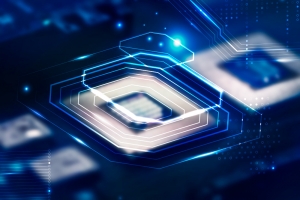In the ever-evolving landscape of technology, innovation is the driving force that shapes our world. From the invention of the wheel to the advent of artificial intelligence, humanity's journey has been marked by groundbreaking technological advancements. In this comprehensive exploration, we delve into the past, present, and future of tech, unraveling its intricate tapestry and examining the transformative impact it has had on society.
The Past: A Journey through Technological Milestones
The story of technology begins thousands of years ago with primitive tools crafted by early humans. The discovery of fire, the invention of the wheel, and the development of agriculture laid the foundation for civilization. Fast forward to ancient civilizations like Mesopotamia, Egypt, and Greece, where innovations such as writing systems, mathematics, and architectural marvels flourished check here thoughthack
The Renaissance period witnessed a resurgence of scientific inquiry and technological innovation, with pioneers like Leonardo da Vinci conceptualizing inventions far ahead of their time. The Industrial Revolution of the 18th and 19th centuries marked a pivotal moment in history, ushering in an era of mechanization, mass production, and urbanization. Steam engines, telegraphs, and railways revolutionized transportation and communication, laying the groundwork for the modern world.
The 20th century witnessed unprecedented progress in technology, with milestones such as the invention of the telephone, the light bulb, and the automobile reshaping society. The advent of computers in the mid-20th century heralded the digital age, leading to exponential growth in computing power and the birth of the internet.
The Present: The Age of Digital Transformation
In the 21st century, we find ourselves amidst the digital revolution, where technology permeates every aspect of our lives. Smartphones, social media, and cloud computing have transformed how we communicate, work, and access information. The rise of e-commerce has revolutionized the retail industry, enabling consumers to shop online from the comfort of their homes.
Artificial intelligence (AI) and machine learning have emerged as game-changing technologies, powering virtual assistants, recommendation systems, and autonomous vehicles. The Internet of Things (IoT) has connected billions of devices worldwide, creating a vast network of interconnected smart devices that enhance efficiency and convenience.
Blockchain technology has disrupted traditional industries like finance, healthcare, and supply chain management, offering secure and transparent solutions for data management and transactions. Virtual and augmented reality technologies are transforming entertainment, education, and healthcare, offering immersive experiences and new avenues for innovation.
The Future: Charting the Course of Technological Progress
As we look ahead, the future of technology holds immense promise and potential. Emerging technologies such as quantum computing, biotechnology, and nanotechnology are poised to revolutionize industries and address some of the most pressing challenges facing humanity.
Quantum computing promises unprecedented computational power, capable of solving complex problems that are currently intractable for classical computers. Biotechnology advancements, including gene editing and personalized medicine, hold the key to curing diseases and enhancing human health and longevity.
Nanotechnology offers the potential to engineer materials and devices at the atomic and molecular scale, leading to breakthroughs in areas such as renewable energy, advanced manufacturing, and environmental remediation. Space exploration and colonization present new frontiers for technological innovation, with endeavors like SpaceX's mission to Mars pushing the boundaries of human exploration.
The evolution of technology is a testament to human ingenuity and creativity, driving progress and shaping the course of history. From ancient civilizations to the digital age, technology has been instrumental in advancing society and improving the quality of life for billions of people around the world.
As we stand on the brink of a new era of technological innovation, the possibilities are limitless. By embracing emerging technologies and harnessing the power of innovation, we have the opportunity to tackle global challenges, unlock new opportunities, and shape a brighter future for generations to come.
In the ever-evolving landscape of technology, innovation is the driving force propelling society forward. From groundbreaking advancements in artificial intelligence to the emergence of quantum computing, the possibilities seem limitless. This article delves deep into the latest trends and developments in the world of tech, exploring how these innovations are reshaping industries, revolutionizing the way we live, work, and interact, and paving the way for a future limited only by our imagination.
Section 1: Artificial Intelligence and Machine Learning Artificial intelligence (AI) and machine learning (ML) have become ubiquitous in today's digital age, transforming industries ranging from healthcare to finance. Breakthroughs in deep learning algorithms have enabled machines to process vast amounts of data, leading to unprecedented capabilities in tasks such as image recognition, natural language processing, and predictive analytics. Moreover, the integration of AI into various sectors is revolutionizing business operations, driving efficiency, and unlocking new opportunities for growth.
Subsection 1.1: AI in Healthcare The healthcare industry is experiencing a paradigm shift with the integration of AI-driven technologies. From diagnosis to treatment, AI-powered systems are enhancing medical decision-making, improving patient outcomes, and revolutionizing personalized medicine. Innovative applications such as predictive analytics for disease prevention, robotic surgery assistance, and drug discovery are transforming the way healthcare is delivered, ultimately saving lives and reducing healthcare costs.
Subsection 1.2: AI in Finance In the financial sector, AI and ML algorithms are driving significant advancements in areas such as fraud detection, risk management, and algorithmic trading. These technologies enable financial institutions to analyze vast volumes of data in real-time, identify patterns, and make data-driven decisions with unprecedented accuracy. Furthermore, AI-powered chatbots and virtual assistants are enhancing customer service experiences, streamlining processes, and optimizing workflows in banking and financial services.
Section 2: Blockchain and Cryptocurrency Blockchain technology, initially popularized by cryptocurrencies such as Bitcoin, has evolved beyond digital currencies to disrupt various industries, including finance, supply chain management, and healthcare. The decentralized and immutable nature of blockchain offers unparalleled security, transparency, and efficiency, revolutionizing traditional systems and processes.
Subsection 2.1: Decentralized Finance (DeFi) Decentralized finance (DeFi) represents a groundbreaking use case of blockchain technology, offering innovative financial services without the need for traditional intermediaries. Through smart contracts and decentralized applications (DApps), DeFi platforms enable peer-to-peer lending, decentralized exchanges, and asset management, democratizing access to financial services and fostering financial inclusion on a global scale.
Subsection 2.2: NFTs and Digital Ownership Non-fungible tokens (NFTs) have captured the imagination of creators, collectors, and investors alike, revolutionizing the concept of digital ownership. Built on blockchain technology, NFTs enable the tokenization and authentication of digital assets such as artwork, music, and virtual real estate, providing creators with new monetization opportunities and collectors with provable ownership rights in the digital realm.
Section 3: Quantum Computing Quantum computing represents the next frontier in computational power, promising exponential gains in processing speed and capacity compared to classical computers. By harnessing the principles of quantum mechanics, quantum computers have the potential to solve complex problems that are currently intractable for classical computers, revolutionizing fields such as cryptography, material science, and drug discovery.
Subsection 3.1: Quantum Supremacy and Beyond Recent milestones in quantum computing, including the achievement of quantum supremacy by leading technology companies, have demonstrated the feasibility of quantum computing at scale. As researchers continue to overcome technical challenges and refine quantum algorithms, the potential applications of quantum computing are expanding, ranging from optimizing supply chain logistics to simulating molecular interactions for drug discovery.
Subsection 3.2: Quantum Security and Cryptography The advent of quantum computing also poses significant implications for cybersecurity, particularly in the realm of cryptography. Traditional encryption methods that rely on mathematical complexity, such as RSA and ECC, may be vulnerable to quantum attacks due to the superior computational power of quantum computers. Consequently, researchers are exploring post-quantum cryptography techniques to develop quantum-resistant encryption algorithms capable of withstanding future threats.
Section 4: Internet of Things (IoT) and Smart Cities The proliferation of internet-connected devices, collectively known as the Internet of Things (IoT), is transforming cities into smart, interconnected ecosystems. By leveraging sensors, actuators, and data analytics, IoT technologies enable real-time monitoring, optimization, and automation of urban infrastructure, enhancing efficiency, sustainability, and quality of life for residents.
Subsection 4.1: Smart Infrastructure and Urban Mobility Smart cities are harnessing IoT technologies to optimize transportation systems, livepositively manage energy consumption, and improve public services. From smart traffic management and intelligent parking solutions to connected public transportation and infrastructure monitoring, these initiatives are reducing congestion, minimizing environmental impact, and enhancing urban mobility for residents and visitors alike.
Subsection 4.2: Sustainable Development and Environmental Monitoring IoT-enabled environmental monitoring systems play a crucial role in promoting sustainable development and mitigating the impacts of climate change. By collecting real-time data on air quality, water quality, and energy consumption, these systems enable informed decision-making, proactive intervention, and long-term planning to safeguard the environment and preserve natural resources for future generations.
Conclusion: As we stand on the precipice of a technological revolution, the possibilities are both exhilarating and daunting. The convergence of artificial intelligence, blockchain, quantum computing, and IoT is reshaping industries, redefining societal norms, and challenging the boundaries of what's possible. However, with great power comes great responsibility. It is imperative that we harness these technologies ethically, responsibly, and inclusively to build a future that is not only technologically advanced but also equitable, sustainable, and humane. The journey ahead is fraught with challenges and uncertainties, but it is also filled with immense promise and potential. Together, let us embark on this transformative journey and shape a future where technology serves as a catalyst for progress, prosperity, and positive change.






